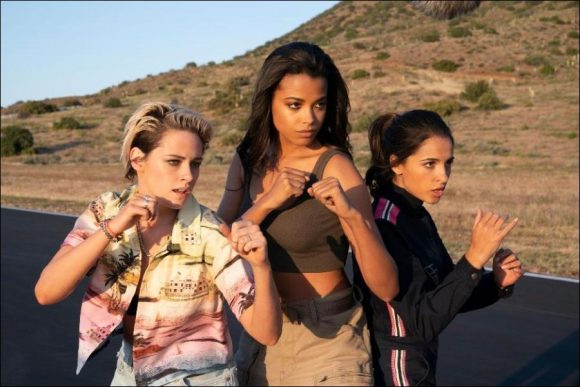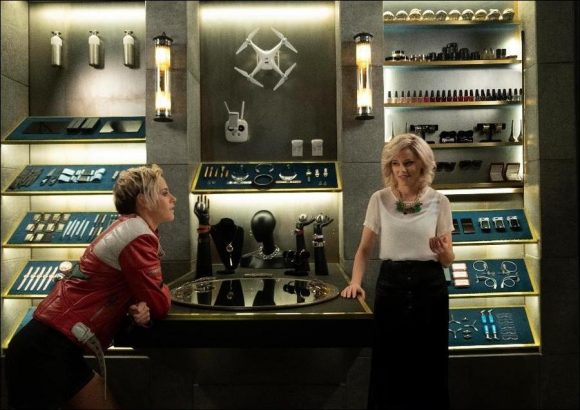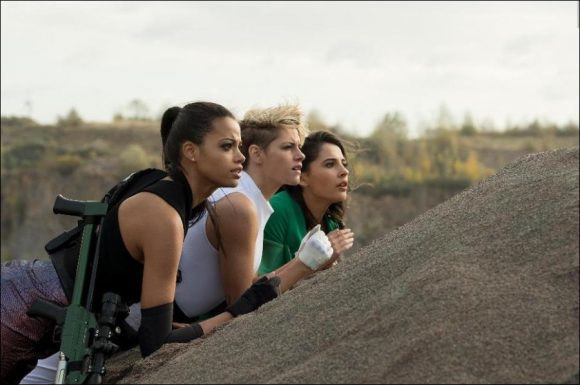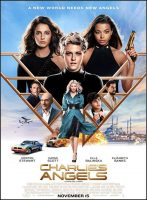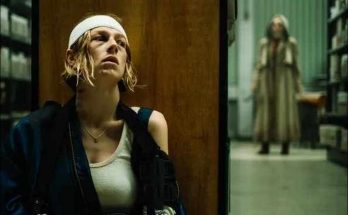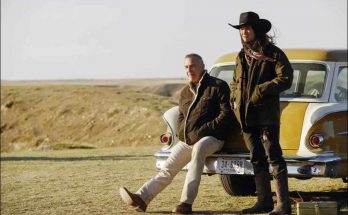Charlie’s Angels’ own writer-director Elizabeth Banks herself has officially sounded the death knell: the soft reboot starring Kristen Stewart is officially a flop. On a budget of $48 million, Charlie’s Angels earned only $8.6 million over its US opening weekend. Ouch.
There is a multitude of factors contributing to the box-office success of a movie, and there is an argument that a film’s receipts have no bearing on its critical, or cultural, merits. Unfortunately, the world at large sees bad box office performance as the direct result of a bad film.
A perfect example of this is Terminator: Dark Fate, which underperformed at the box office despite being a solid action film in a franchise beloved by many. All the factors were ripe for success, yet it petered out at under $300 million worldwide.
Unlike the Terminator franchise, which has had many failed sequels and reboots before, Charlie’s Angels has enjoyed a relatively positive spotlight in pop culture. Even the 2000s reboot, which has not aged well, is still looked back upon with rose-tinted glasses by many.
So what went wrong for Elizabeth Banks and her new angels Kristen Stewart, Naomi Scott and Ella Balinska? In our opinion: marketing. It’s simplistic to put it down to reboot/sequel fatigue. This year has seen plenty of revisits excel at the box office. Naomi Scott’s own Aladdin movie, though underwhelming critics, did extremely well financially and we’re all eye-rollingly aware of the endless stream of Disney reboots.
In this case, it was perhaps a question of whether anyone wanted a Charlie’s Angels reboot. Strictly speaking, Banks’ is a long-delayed sequel, which acknowledged (cleverly, we might add) the 2000s reboots as part of its canon.
However, this wasn’t clearly promoted. To a casual viewer – even to a seasoned one – Charlie’s Angels seemed like a plain old reboot. There was nothing in the trailers, nor in the title, to imply anything else.
Banks’ consistent messaging was that it wasn’t a reboot, but a billboard on a bus is far more persuasive than a well-reasoned opinion. In this instance, the billboards all told one story: Charlie’s Angels had been rebooted for a ‘woke’ generation of Millennials.
And thus, we’re at marketing problem number two. ‘Wokeness’ isn’t a foundation upon which a movie can be built. It can be a framework, a goal, a guidepost. But without heart, all of the feminist trumpet-sounding rings hollow.
This was a huge loss because Charlie’s Angels is a fun, energetic, exciting action movie with big stunts, big laughs, and a big heart. And yes, it happens to include a feminist message (to a certain degree) within it – but that is not what the movie is about.
This kind of overt demographic-baiting is visible a mile off, especially by the very demographic Charlie’s Angels sought to capture. Others who might have wanted to see the film – out of nostalgia or curiosity – may have felt like they’d have to hold their nose as they entered the cinema.
Before Charlie’s Angels hit cinemas, Banks said (via IndieWire): “[People will] go and see a comic book movie with Wonder Woman and Captain Marvel because that’s a male genre. So even though those are movies about women, they put them in the context of feeding the larger comic book world, so it’s all about, yes, you’re watching a Wonder Woman movie but we’re setting up three other characters or we’re setting up Justice League.”
The quote was dragged out again in response to Charlie’s Angels’ less than stellar performance, with many chastising the director for misunderstanding both the demographics of superhero movies as well as what makes a successful woman-centric film. It also ignores the troll-bombing that dogged Captain Marvel.
What this comparison to Wonder Woman and Captain Marvel actually does is highlight another problem that Charlie’s Angels faced: there wasn’t a thirst to see the angels back on the screen.
Whereas countless Marvel and DC Comics fans (men and women!) wanted to see Wonder Woman and Captain Marvel get their cinematic due, far fewer were waiting excitedly for Charlie’s Angels to get the same. The fact that both superhero movies had a feminist message woven through them was both an active decision and a byproduct of what the movies were going to mean. Though Banks had these same intentions, to make a good action movie that was also progressive, the message overwhelmed the medium.
Kristen Stewart did her best to combat the overwhelming messaging by reinforcing that what they were doing was making a solidly fun action film. She told Variety: “At one point I think we said it was woke and grounded, and everyone was like, ‘Wait, is it still fun?’ And I’m like, ‘Yeah dude, obviously, it’s Charlie’s Angels.'”
Though Stewart is undeniably a huge talent, her star power is perhaps of a slightly lesser wattage than her contemporaries. When you put her in a film with two relative newcomers, that instant face-recognition draw is lost, especially when you consider who starred in the 2000s reboot: three of the biggest female stars of the era, Drew Barrymore, Cameron Diaz and Lucy Liu.
All of these problems come under the poor marketing umbrella. But separate to those issue are the mediocre reviews. Digital Spy gave it four out of five stars, and we meant it.
But lacklustre word of mouth resulted in people who may have been on the fence deciding to save their hard-earned money (cinemas are expensive!) and wait for its eventual release on a streaming service.
If only one of these missteps had befallen Charlie’s Angels, we might be having a very different conversation. But for now, it seems as if this might be the last mission for this generation of angels, which is a shame because it would have been fun to see the actors – Stewart’s earnest humour, in particular – grow in these roles.
All about Charlie’s Angels movie.
Charlie’s Angels (2019)
Directed by: Elizabeth Banks
Starring: Kristen Stewart, Naomi Scott, Ella Balinska, Elizabeth Banks, Djimon Hounsou, Sam Claflin, Noah Centineo, Patrick Stewart, Jonathan Tucker, Samantha Hunter Ogan, élène Cardona
Screenplay by: Elizabeth Banks
Production Design by: Aaron Haye
Cinematography by: Bill Pope
Film Editing by: Alan Baumgarten, Mary Jo Markey
Costume Design by: Kym Barrett
Set Decoration by: Mark Rosinski
Art Direction by: Andreas Olshausen, Cornelia Ott, Stephanie Rass, Bryce Tibbey
Music by: Brian Tyler
MPAA Rating: PG-13 for action/violence, language and some suggestive material.
Distributed by: Columbia Pictures
Release Date: November 15, 2019
Visits: 265
